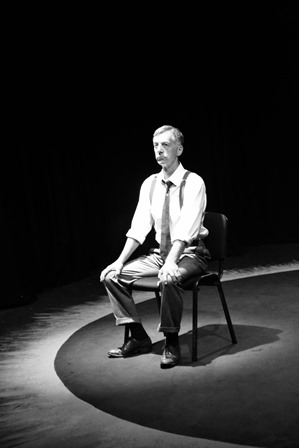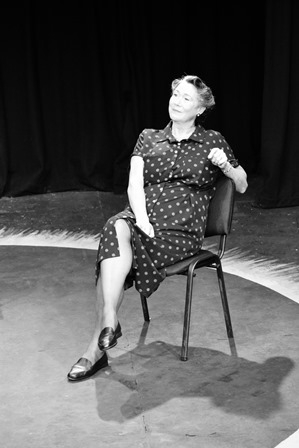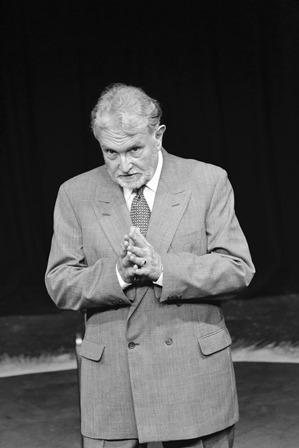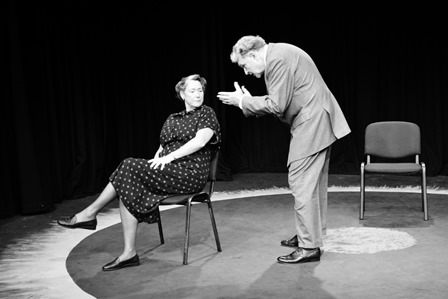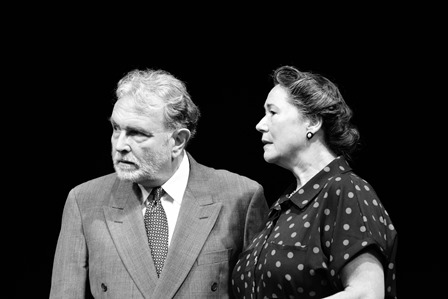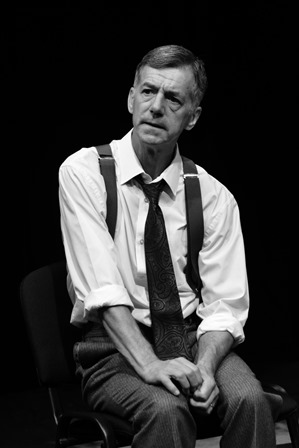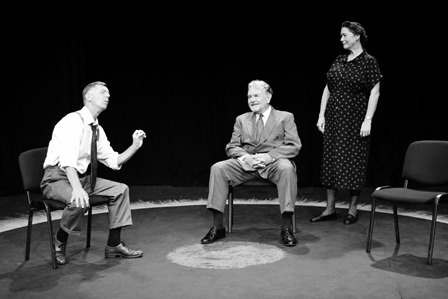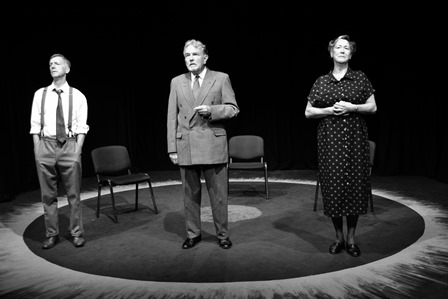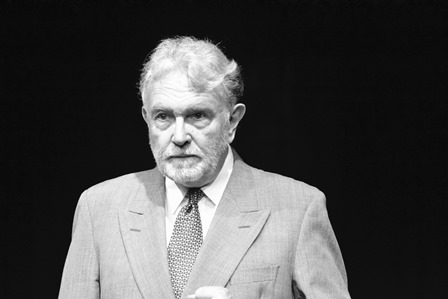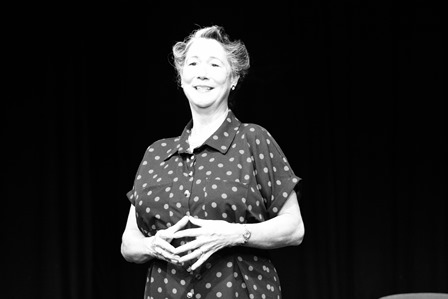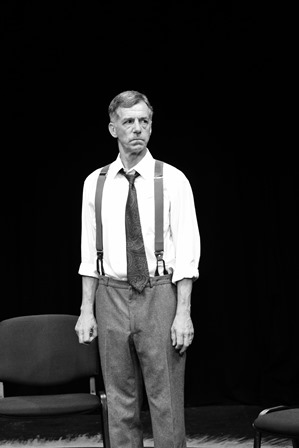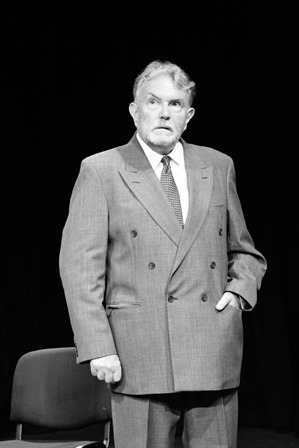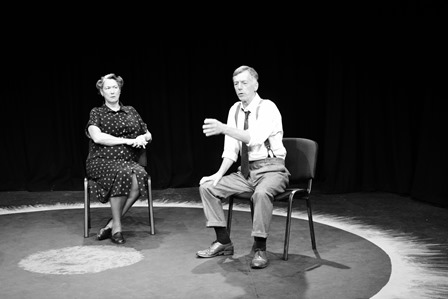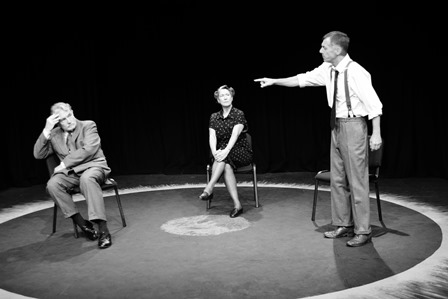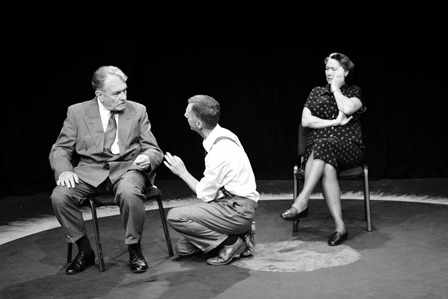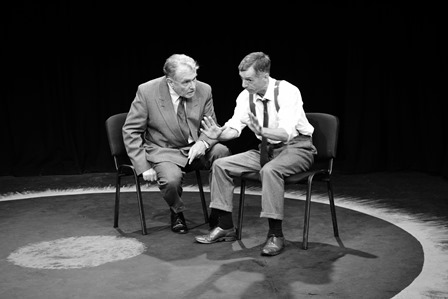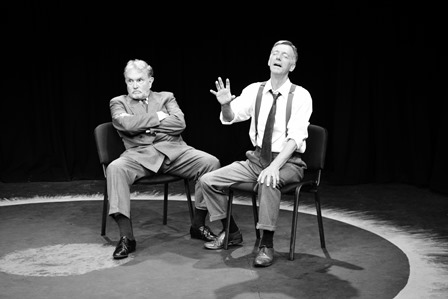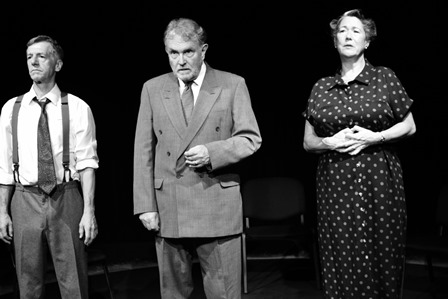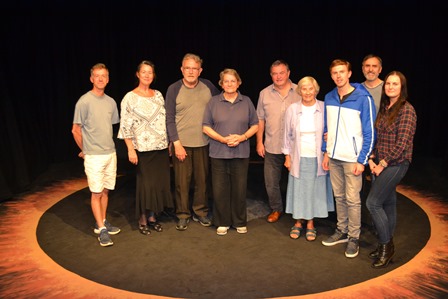The Bench Production
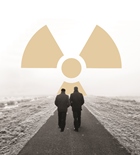
This play was staged at The Spring Arts and Heritage Centre (formerly Havant Arts Centre), East Street Havant - Bench Theatre's home since 1977.
Cast
| Margrethe Bohr | Sarah Ash |
| Niels Bohr | David Penrose |
| Werner Heisenberg | Steven Foden |
Crew
| Director | Jacquie Penrose |
| Stage Manager | Sharman Callam |
| Lighting Design | Andrew Caple |
| Sound Design | Howard Alston |
| Lighting Operation | Ben Tanner |
| Sound Operation | Kerrie Thirlwell |
| Set Design | Jacquie Penrose |
| Set Painting | David Penrose |
| Rehearsal Prompt | Ruth Prior |
| Flyer Design | Dan Finch |
| Programme Editor | Derek Callam |
| Photography | Sharman Callam |
Director's Notes
Why choose to direct Copenhagen? On one level it could appear unappealing – three dead people talking about physics. That's true, but that's not it. It is the kind of play that always draws me in – big important issues dramatized through character, personal relationships and moral uncertainty. The focus of Frayn's play is the historic meeting in 1941 between two famous physicists – Werner Heisenberg, a German, and Niels Bohr, a Dane. Before the war they had been leaders in their fields, colleagues, both Nobel Prize winners, and friends.
In 1941, Bohr was in occupied Denmark; Heisenberg, then working for the German nuclear programme, was from the occupying nation. The meeting broke the friendship, but no one, not even the protagonists, could ever give a satisfactory account of what actually took place, despite endless interrogations, researches and publications. Frayn the playwright gives them one last chance to try and unravel the complexities of their situation, in the company of Bohr's wife Margrethe. Their imaginary encounter in the afterlife ranges across their relationships, and revisits the deeply challenging questions they faced in life; Heisenberg the German scientist asks if you should love your country less because it happens to be in the wrong? Who is more guilty – Heisenberg, who did not build nuclear weapons despite having the opportunity, or Bohr, who escaped from Denmark, joined the Manhattan Project and contributed to the development and use of nuclear weapons? If a child is drowning, do you dive in to save it if you risk losing your own life as well? And what price does an intelligent, talented wife pay, devoted to a driven genius?
Bohr and Heisenberg's famous achievement was the development of the theories of uncertainty and complementarity; they are important in the play, both as physics and, perhaps more importantly, as metaphor. The play is essentially about the "core of uncertainty at the heart of all things". And complementarity; Heisenberg again – "I'm your enemy; I'm also your friend. I'm a danger to mankind; I'm also your guest. I'm a particle; I'm also a wave. We have one set of obligations to the world in general, and we have other sets, never to be reconciled, to our fellow-countrymen, to our neighbours, to our friends, to our family, to our children…"
Jacquie Penrose
Reviews
Production Photographs
